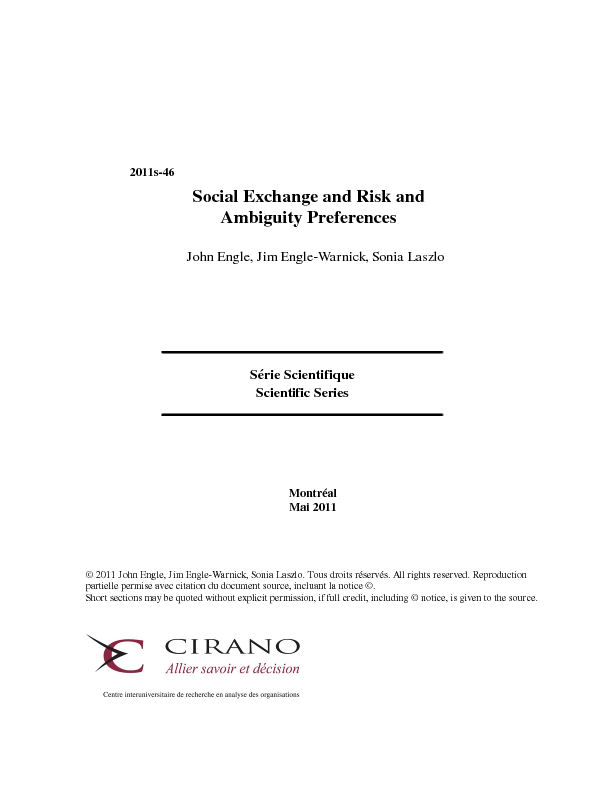Social Exchange and Risk and Ambiguity Preferences
We present an experiment in which we test for the effect of participating in a social exchange exercise on revealed risk and ambiguity preferences. In our experiments, subjects make choices over lotteries that reveal their risk and ambiguity preferences. They then participate with a small group in an unstructured on-line chat. After the chat, they reconsider their choices in the risk and ambiguity instruments. In a control session, different subjects view, but do not participate in, past chats. Through a content analysis we investigate the role of chat content and chat participation on changes in revealed preferences. We compare our results to the Discovered Preferences Hypothesis (Plott, 1996) and Fact-Free Learning (Aragones, Gilboa, Postlewaite, and Schmeidler, 2005).
[ - ]




